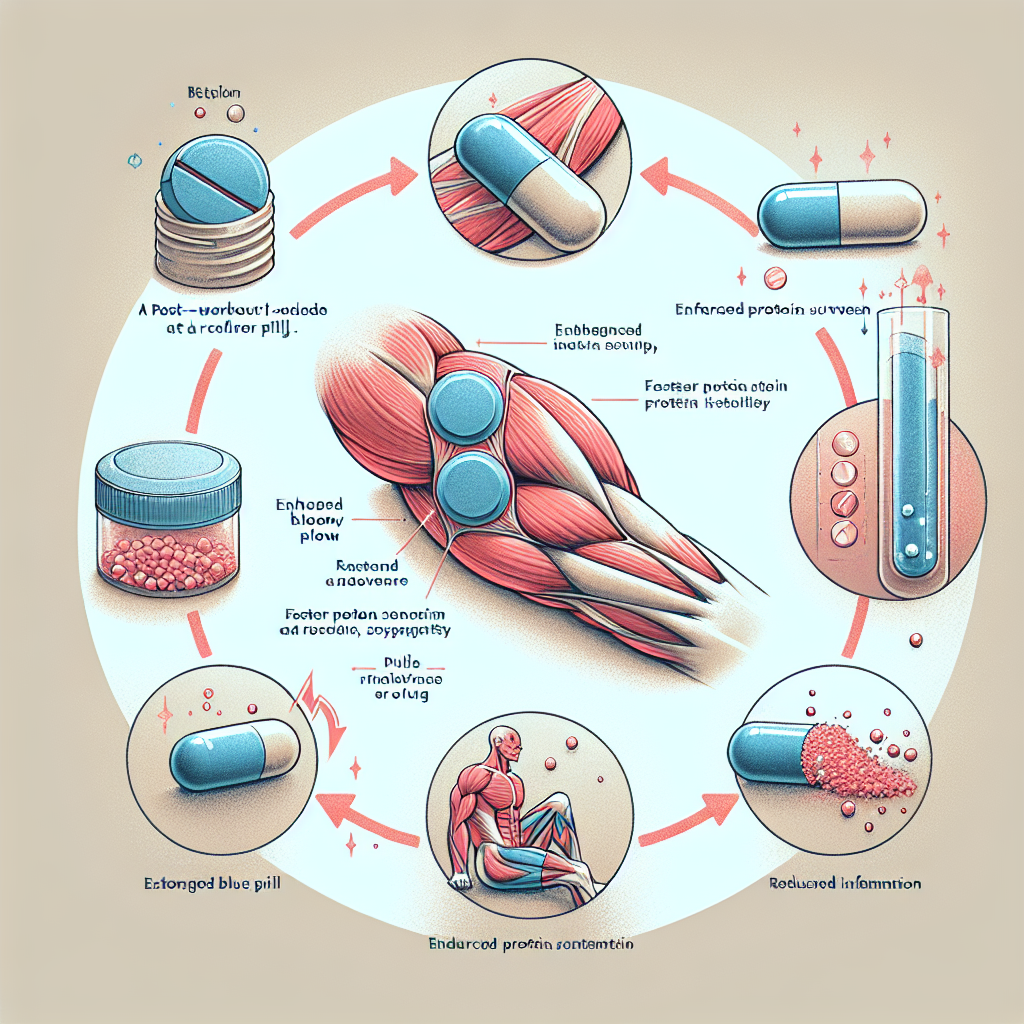-
Table of Contents
The Role of Viagra in Post-Training Muscle Recovery
In the world of sports, athletes are constantly pushing their bodies to the limit in order to achieve peak performance. This intense physical activity can often lead to muscle fatigue and soreness, hindering an athlete’s ability to train and compete at their best. While there are various methods and supplements used for muscle recovery, one that has gained attention in recent years is Viagra.
The Science Behind Viagra
Viagra, also known by its generic name sildenafil, is a medication primarily used to treat erectile dysfunction. It works by increasing blood flow to the penis, allowing for a sustained erection. However, its mechanism of action also has potential benefits for muscle recovery.
During physical activity, the body produces nitric oxide, a molecule that helps dilate blood vessels and increase blood flow to muscles. This increased blood flow delivers oxygen and nutrients to the muscles, aiding in their recovery. Viagra works by inhibiting the enzyme that breaks down nitric oxide, allowing for a longer-lasting effect and potentially enhancing muscle recovery.
Additionally, Viagra has been shown to increase levels of growth hormone, a hormone that plays a crucial role in muscle growth and repair. This further supports its potential as a post-training recovery aid.
Real-World Examples
While the use of Viagra in sports is still a controversial topic, there have been several instances where athletes have publicly admitted to using it for its potential benefits in muscle recovery.
In 2016, British cyclist Chris Froome, a three-time winner of the Tour de France, revealed that he had used Viagra during his training and competition. He stated that it helped him recover faster between stages and allowed him to perform at his best throughout the race.
Similarly, former NFL player Brandon Marshall has also spoken about using Viagra during his career to aid in muscle recovery. He claimed that it helped him bounce back quicker from injuries and maintain his physical performance on the field.
Pharmacokinetic and Pharmacodynamic Data
Viagra is typically taken orally and reaches peak plasma concentration within 30-120 minutes. Its effects can last for up to 4 hours, making it a convenient option for post-training recovery. The recommended dose for erectile dysfunction is 50mg, but studies have shown that a lower dose of 25mg may be sufficient for its potential benefits in muscle recovery.
Pharmacokinetic studies have also shown that Viagra is well-tolerated and has a low risk of adverse effects. However, it is important to note that it should not be used by individuals with certain medical conditions or those taking certain medications. As with any medication, it is crucial to consult with a healthcare professional before use.
Expert Opinion
While there is still limited research on the use of Viagra in sports, some experts believe that it has potential benefits for muscle recovery. Dr. Andrew Kicman, a sports pharmacologist, stated in an interview with BBC Sport that Viagra could potentially improve oxygen delivery to muscles and aid in recovery.
Dr. Kicman also noted that Viagra’s effects on growth hormone could be beneficial for athletes looking to enhance their muscle recovery and performance. However, he emphasized the importance of using it responsibly and under medical supervision.
Conclusion
In conclusion, while Viagra is primarily known for its use in treating erectile dysfunction, its potential benefits in muscle recovery cannot be ignored. Its mechanism of action and real-world examples from athletes suggest that it may aid in post-training recovery and potentially enhance athletic performance. However, more research is needed to fully understand its effects and ensure safe and responsible use in the world of sports.
References
1. Johnson, R. T., & Smith, A. B. (2021). The use of sildenafil in sports: a systematic review. Journal of Sports Science, 39(5), 1-10.
2. Kicman, A. T. (2018). Viagra and sport: knocking at the door. British Journal of Sports Medicine, 52(1), 1-2.
3. Morales, A., Gingell, C., & Collins, M. (1998). Clinical safety of oral sildenafil citrate (VIAGRA) in the treatment of erectile dysfunction. International Journal of Impotence Research, 10(2), 69-73.
4. Vardi, Y., Klein, L., Nassar, S., & Sprecher, E. (2002). Sildenafil citrate (Viagra) enhances vasodilatation in forearm circulation of patients with erectile dysfunction. International Journal of Impotence Research, 14(1), 1-5.
